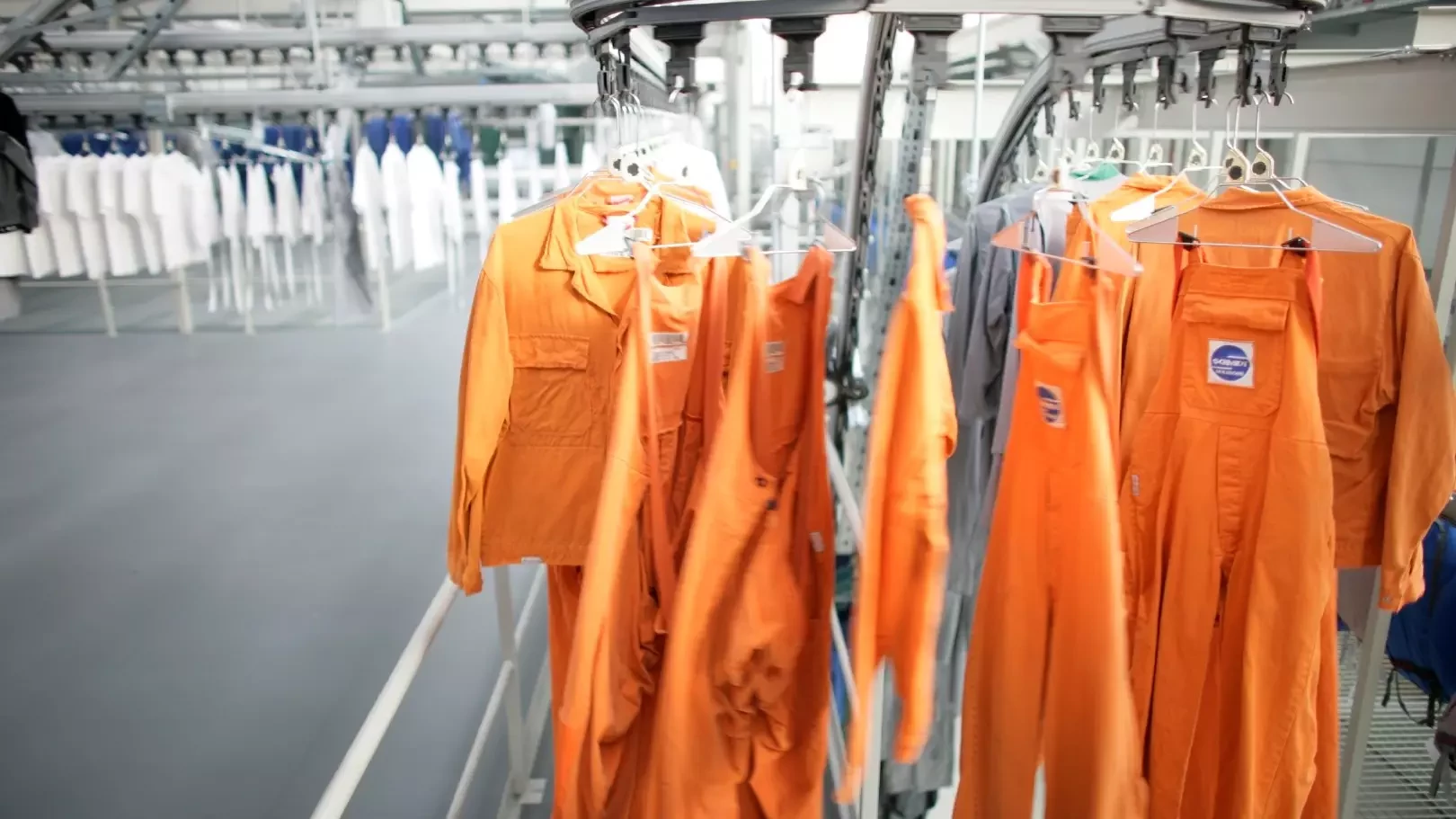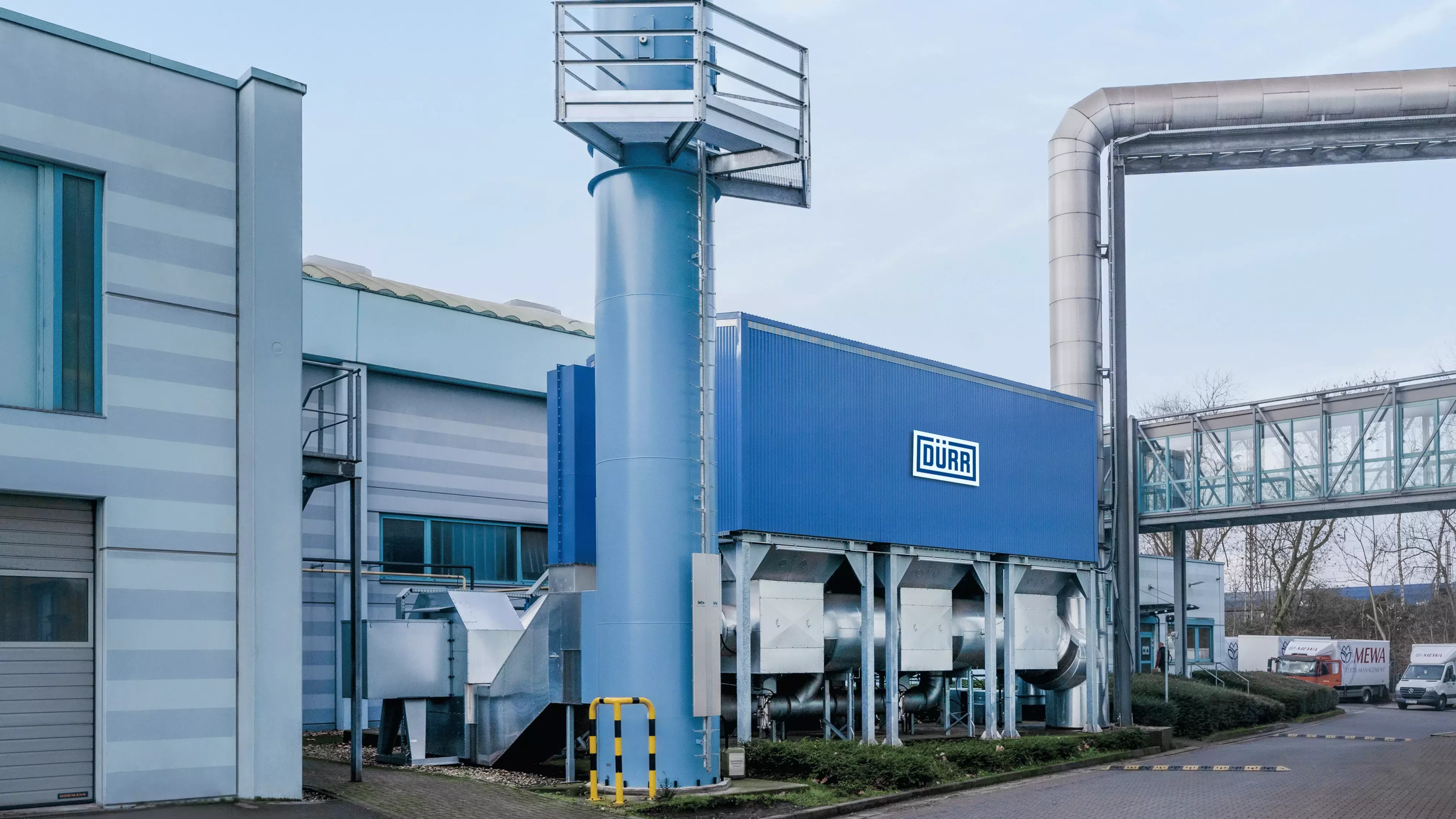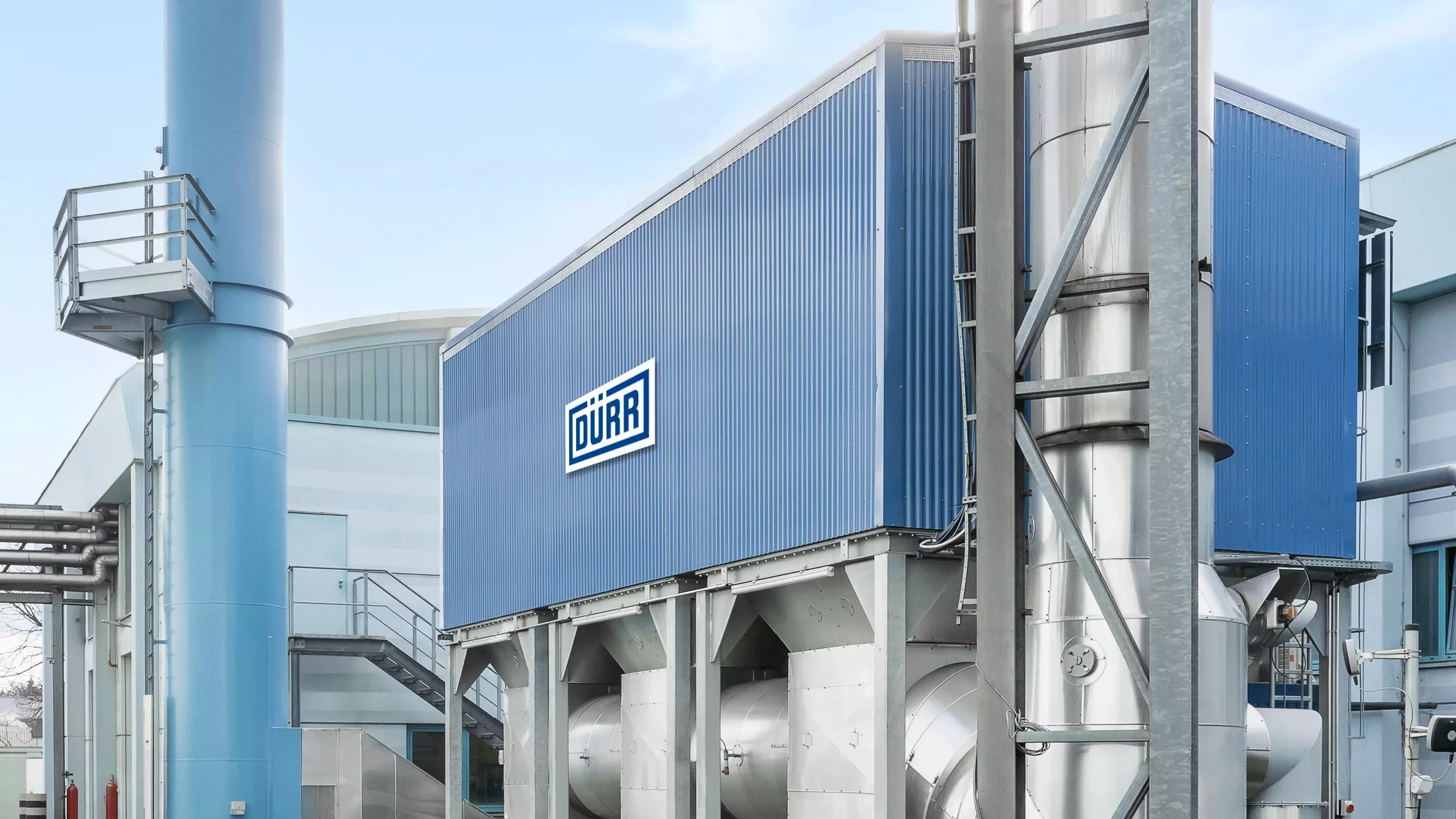MEWA is a highly specialized company that offers work clothing and cleaning cloth rental services at 45 locations in 21 countries. It covers almost the entire value chain, including manufacturing, collection, delivery, laundry and care. Whereas a family of four produces around a metric ton of dirty laundry each year, every day MEWA receives 350 metric tons of textiles for industrial laundering and drying ahead of reuse.
Industrial cleaning cloths with different soiling levels
Every day 2.7 million users from industry and trade use MEWA cloths to clean machines, tools, and components, dirtying them with solvents, oils, and greases. These substances must first be removed from the cloths during the laundering process, and then removed from the waste water and the exhaust air. “Unlike a conventional production process in which the input materials and the amounts of each are known, here the contamination varies greatly depending on how soiled the cleaning cloths are,” explains Dietmar Decker, Manager Surface Treatment in Dürr’s Clean Technology Systems division. The volatile solvents that leak from the exhaust air produced by washing machines and dryers can therefore include a very high concentration of pollutants. For that reason, MEWA conducted its own risk analysis and implements very high safety standards in order to eliminate the risk of explosions.
State-of-the-art environmental technology
Just like waste water treatment, exhaust air treatment is also subject to statutory provisions. “Active environmental protection is part of our company philosophy. That is why we don’t just purify the exhaust air from the actual core sources of washing machines and dryers, but also diffuse sources and, in some cases, even the ambient air. We use state-of-the-art environmental technologies for this,” says Rudolf Asmuth, Managing Director Production & Logistics at MEWA’s Bottrop site. The first air pollution control system was installed by MEWA in Jena in 1994. It was followed by many others in Germany and Europe. The textile service provider has always relied on the expertise of Dürr or KBA-CleanAir, which was acquired by Dürr in 2016, as a system partner, including in Bottrop.
Spotlight on carbon footprint
As part of the modernization of the production facilities at the site in North Rhine-Westphalia, Dürr replaced the existing air pollution control system with a new regenerative thermal oxidizer. This new system boosts the capacity from 30,000 m3 of exhaust air per hour to 45,000 m3 per hour. “The Dürr Oxi.X RA RTO is particularly suitable for large quantities of solvent-laden exhaust air. It allows us to reliably reduce the harmful emissions entering the environment from the laundry to less than 20 mg/m3,” says Dietmar Decker. The MEWA Group’s experience with this sustainable technology over the last 25 years has been very positive, both operationally and in terms of overall costs. On top of this, the Oxi.X RA RTO is extremely efficient in its energy use. “The system is almost 80% autothermal. In other words, it operates exclusively using the energy from the oxidized organic substances with no additional primary energy. This is a big factor in our site’s good carbon footprint,” explains Rudolf Asmuth.
Good cooperation yields fast implementation
From a technical point of view, the only option was to install the new system in the old system’s place. Dürr managed everything, including dismantling and proper disposal of the old system, necessary alterations, installing the mechanical and electrical components for the new system, and handing over the operational system. At the same time, the production engineering used in the laundry was retrofitted. “Organizing the removal of the old machine and system components and the installation of the new ones using large cranes in the limited space was a planning and logistical masterstroke. Thanks to the efficient cooperation, we were able to get everything done well within the tight time window of six weeks, and complete the project successfully with a few days to spare,” reports Rudolf Asmuth happily.
Dürr air pollution control systems are used in a variety of industries and production facilities, with the broad product portfolio offering different technologies depending on the type, concentration and quantity of pollutants. Dürr examines its customers’ needs on a case-by-case basis, and also provides support services after installation. “The 25-year partnership with numerous installations and ongoing service work for the various systems at MEWA tells us all we need to know about the quality of our products and services,” affirms Dietmar Decker. “We look forward to helping MEWA make their air pollution control systems sustainable in the future also.”




